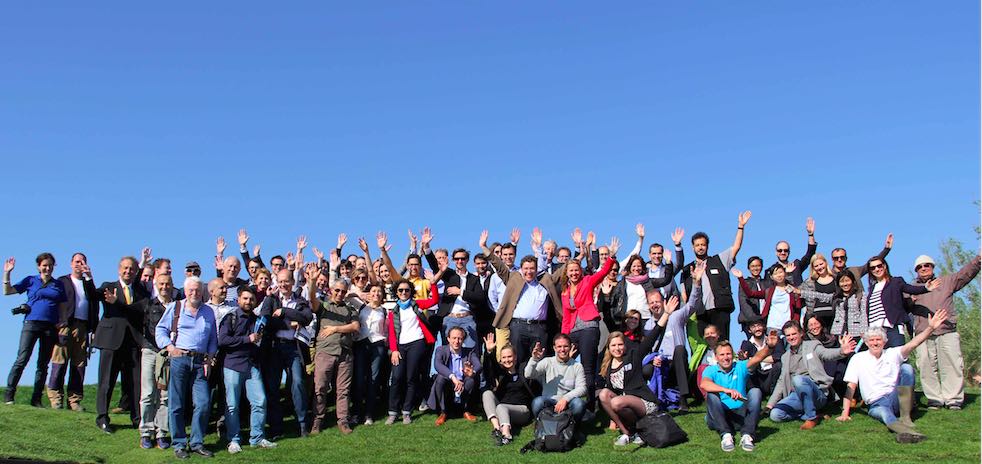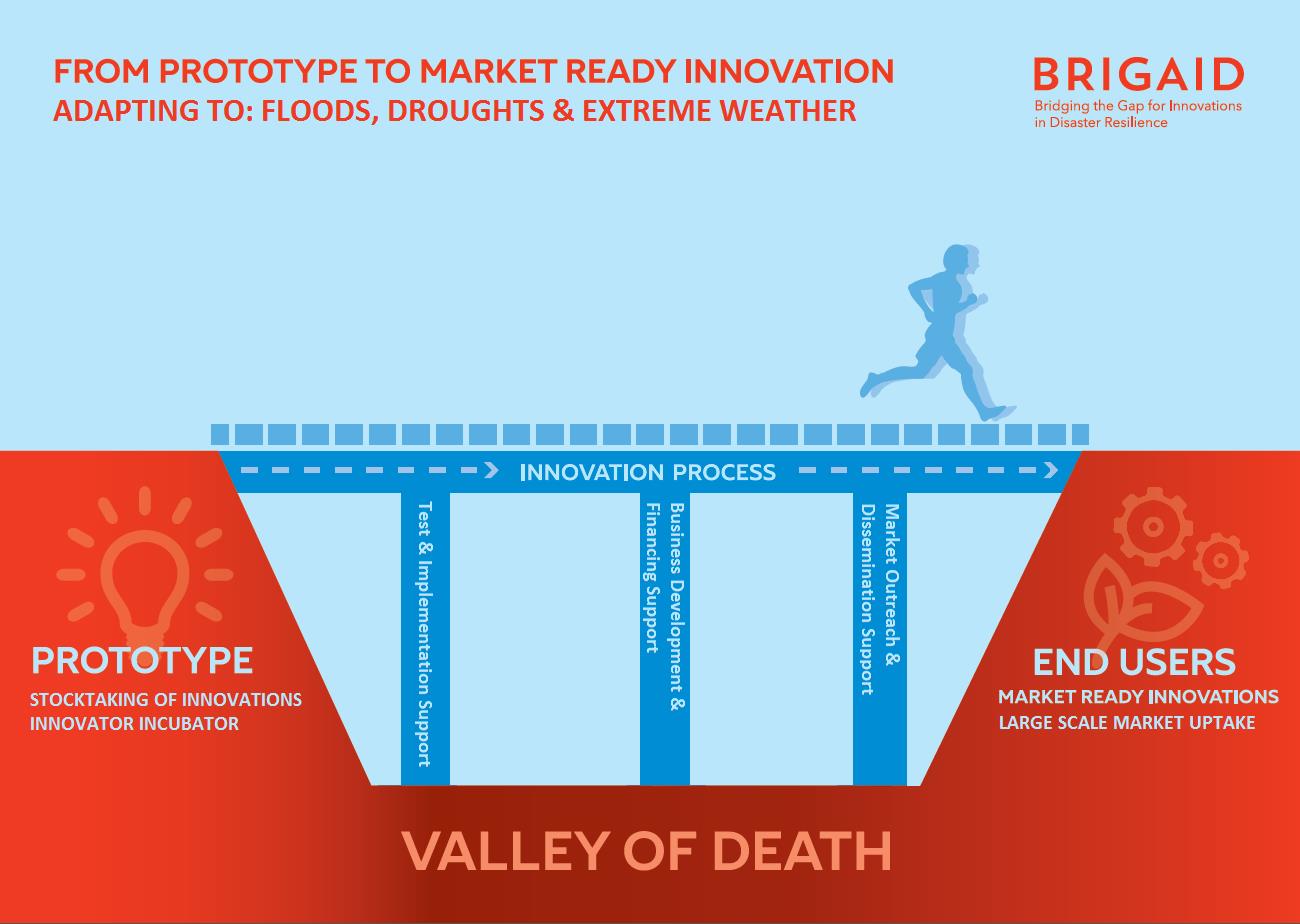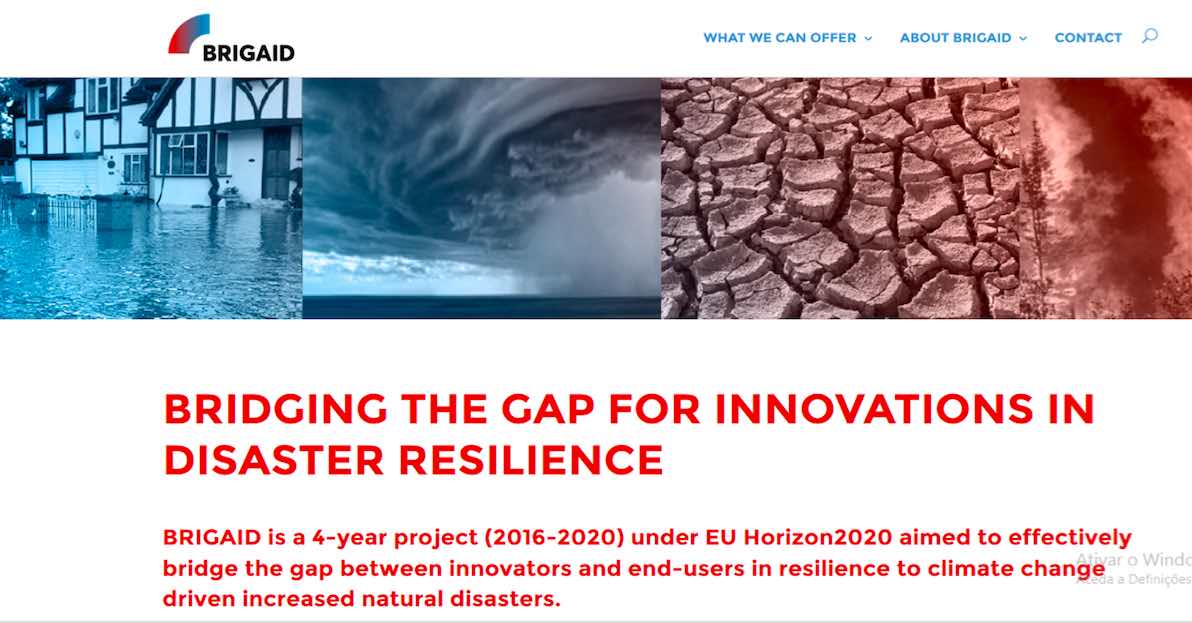COORDINATION: Delft University of Technology.
CEABN InBIO TEAM: Francisco Castro Rego (Coord.), Joaquim Sande Silva, Leónia Nunes, Maria da Conceição Colaço, Paulo Fernandes and Susana Dias.
OTHER INSTITUTIONS: 24 European Institutions.
URL: http://brigaid.eu
The BRIGAID project aims to provide structural, ongoing support for innovations in climate adaptation by developing an innovative mix of testing and implementation methods, and market and investment/financing tools, that should become a standard for climate adaptation innovations.
The BRIGAID’s approach is supported by three pillars:
1. The project takes into account the geographical variability of climate-related hazards and their interaction with socio-economic changes;
2. Establishes structural, on-going support for innovations that are ready for validation in field tests and real life demonstrations;
3. Develops a framework that enables an independent, scientific judgment of the socio-technological effectiveness of an innovation.
This project will bring actively together innovators and end-users in Communities of Innovation, resulting in increased opportunities for market-uptake. It will contribute to the development of a technological and performance standards for adaptation options by providing a Test and Implementation Framework (TIF) and test facilities throughout Europe, it will improve innovation capacity and the integration of new knowledge by establishing an innovators network and will strengthen the competitiveness and growth of companies with the support of a dedicated business team.
This project aims to develop business models and market outreach to launch innovations to the market and secure investments in innovations beyond BRIGAID’s lifetime.
In the framework of BRIGAID, CEABN will contribute in two ways: firstly, by participating on the Work Package on Droughts which is aimed to make an intensive stocktaking, testing, and business development process mainly by providing a decision support tool for monitoring and assessing the risk of wildfires in drought conditions. Secondly by participating on the Test and Implementation Framework Work Package which aims to develop a comprehensive standardized methodology for testing and implementing climate adaptation measures, in particular to assess their potential to reduce risks from floods, droughts and extreme weather.







